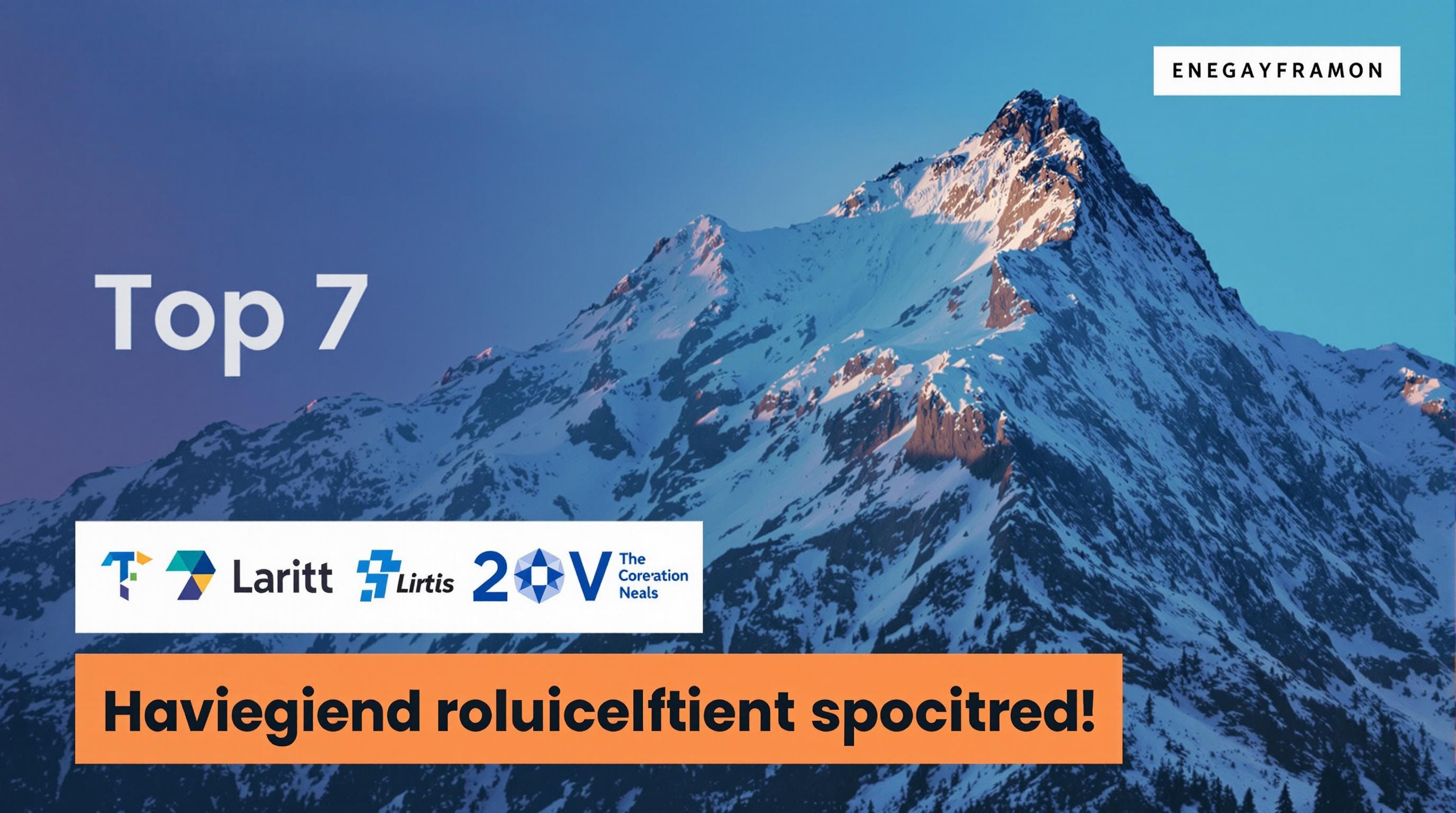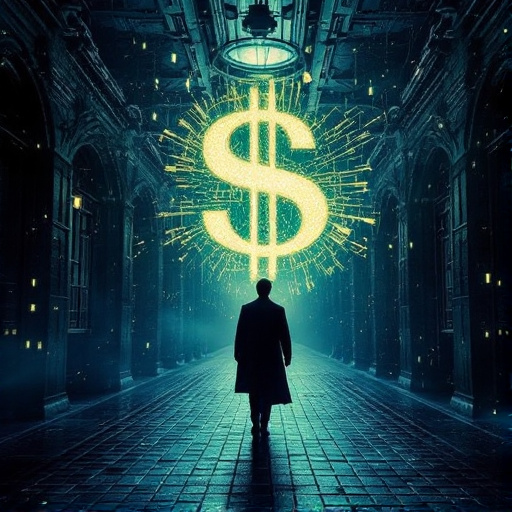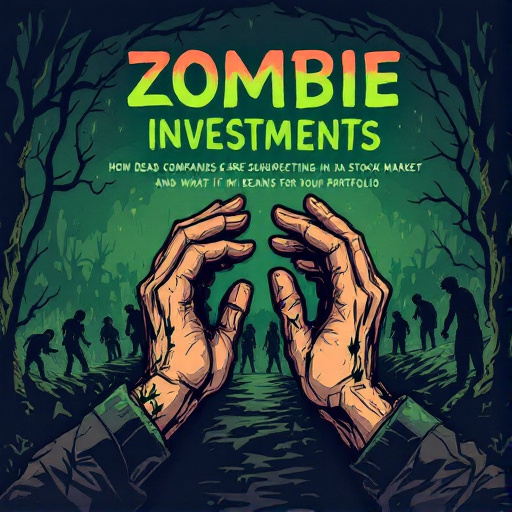Featured Articles
- Ghost Investing: How Haunted Real Estate Could Be Your Next Unlikely Asset Class
- Investing in Chaos: How Political Turmoil Drives Unexpected Market Opportunities
- Investing in Dreamscapes: The Rise of Virtual Real Estate and Its Untapped Value مص
- Investing in the Underworld: How Dark Money Shapes the Future of Finance
- "Investing in Your Future: How Micro-Businesses are the New Gold Mines in a Post-Pandemic Economy"
Investing in the Underworld: How Dark Money Shapes the Future of Finance
Investing in the Underworld: How Dark Money Shapes the Future of Finance
In recent years, "dark money" has emerged as a powerful force shaping not only political landscapes but also the future of finance. This article delves into the intricacies of illicit financial flows, the role of anonymous funding in global markets, and the pervasive implications of these forces, blending factual discourse with informal insights.
The Dark Underbelly of Finance
Imagine the world of finance as an iceberg, where only a small portion is visible above water, while the bulk lies hidden beneath the surface. This submerged mass comprises various channels of dark money—cash flows that operate in the shadows, free from oversight and regulation. According to a report by the International Monetary Fund (IMF), illicit financial flows reached an astonishing $1.6 trillion globally in recent years, underscoring the staggering influence of this underworld on our economies.
What Exactly is Dark Money?
Before diving deeper, let's clarify what dark money actually means. Generally, dark money refers to funds used for political purposes, such as campaigns, without disclosing the source of the money. It often stems from corporations and wealthy individuals who prefer to remain anonymous, allowing them to exert considerable influence over political decisions. As the Center for Responsive Politics notes, dark money organizations spent approximately $1.5 billion in the 2020 election cycle alone.
Case Study: The Role of Shell Companies
Consider the case of shell companies. These entities, which exist only on paper, serve as a façade for illicit activities. They allow individuals to conceal the true origin of their funds. The 2016 Panama Papers revealed how powerful figures could use shell companies to hide wealth—from politicians to celebrities, the scandal was a shocking exposé of financial deceit. Attorney General Letitia James stated, “When the wealthy and powerful think they are above the law, communities suffer.”
Casual Conversations in the Dark
Have you ever been in a conversation where someone mentions an investment opportunity that sounds too good to be true? “You won’t believe it!” they say, describing a scheme that promises astronomical returns with minimal risk, often linked to the underworld of finance. “All you need to do is wire the money to this account,” they insist, their eyes gleaming with the allure of fast cash.
This typical banter symbolizes a broader issue in the financial world—individuals, both naive and cunning, get lured into these dubious schemes, contributing to the perpetuation of dark money. The allure of easy money has historically led many down a path fraught with danger, and in today's digital age, it’s easier than ever to stumble upon such dishonest propositions.
The Impact on Legitimate Businesses
But it doesn't stop there. Dark money not only impacts individuals; it also has far-reaching effects on legitimate businesses. Small enterprises often struggle to compete against giants that can afford to operate in the shadows. For instance, when big corporations leverage dark money to undermine regulations, it creates an uneven playing field. The lack of transparency fosters corruption, driving away honest competition.
The Human Element: Why Should We Care?
So why should the average person care about dark money? Well, the implications reach far beyond finance; they extend to political freedom, human rights, and social justice. By allowing anonymous funding to infiltrate our systems, we risk compromising the integrity of democracy itself. A study from the Brennan Center for Justice highlights that when dark money flows freely, voter turnout decreases, suggesting that citizens start feeling helpless against an opaque political system.
Humor Amidst Seriousness
Now, let’s add a pinch of humor to this rather grim discussion. Picture this: A group of financiers sitting around a lavish table covered with money. One says, “I recently invested in a startup that guarantees 100% returns!” Everyone bursts out laughing, and a voice in the corner says, “I’ve heard the same thing about my ‘growing’ collection of Beanie Babies.” While it’s easy to poke fun, this reflects real-life experiences where people are caught in financial schemes that spring from the depths of the dark side.
Technology: A Double-Edged Sword
Technology plays a significant role in both facilitating and combating dark money. On one hand, cryptocurrencies, with their anonymous nature, can be a playground for illicit transactions. The Financial Crimes Enforcement Network (FinCEN) estimates that nearly $2.6 billion in Bitcoin was transferred in 2020 for illegal activities. However, technology also empowers regulators and institutions combatting these flows, illustrated by advancements in blockchain analytics that reveal hidden transactions.
The Road to Reform
Reforming the way dark money operates is a heavy lift, likely requiring a united effort from government bodies, financial institutions, and the public. Various proposals are on the table, ranging from stricter enforcement of existing laws to the introduction of new regulations that demand transparency in donations. The U.S. House of Representatives passed the DISCLOSE Act in 2021, aiming to bring dark money into the light. The conservative estimate is that transparency could increase public trust in financing political campaigns by at least 30%—imagine that!
Storytelling: Lessons from the Ground
Let me share a story of a friend named Sarah. A bright-eyed recent college graduate, Sarah landed a successful job in finance and was excited to invest her savings. While exploring investment options, she stumbled upon a shadowy online community praising a particular investment scheme promising incredible returns. Engulfed by the thrill, she took a leap of faith, only to find herself entangled in a web of deception, losing most of her savings in the process.
Her experience illuminated a stark lesson: the siren call of high returns often masks perilous risks. Sarah’s journey serves as a cautionary tale—one that reflects the reality for many naive investors drawn into the world of dark money.
The Search for Accountability
As the dark money underworld continues to expand, the need for accountability becomes increasingly crucial. Organizations like Transparency International focus on putting pressure on policymakers to enforce transparent practices and bring financial crimes to light. The interconnected nature of today's economies means that no nation operates in a vacuum, and thus an international approach is needed to combat this phenomenon effectively.
The Future…What Lies Ahead?
Looking forward, the future of finance may well be defined by how effectively we can shine a light on the dark corners of money. Researchers suggest that as awareness grows about dark money’s implications, new financial ethics may evolve—leading to a more transparent, accountable economic landscape. According to a recent survey, more than 76% of millennials expressed concern about the role of dark money in politics, indicating a shift in public sentiment that could lead to change.
A Call to Action
It’s time to prioritize transparency and integrity in our financial systems. This call to action extends beyond lawmakers; as individuals, we must advocate for financial literacy and awareness. Building a society that understands and combats dark money will ensure that we can safeguard future generations’ economic freedoms. Each one of us can play a role, whether through informed investing, participating in advocacy, or simply educating ourselves.
Final Thoughts
The intricate web of dark money raises unsettling questions about our financial systems, governance, and society as a whole. While it offers a window into the underworld of finance, it’s also a mirror reflecting our values and priorities. By questioning the status quo and demanding transparency, we can reclaim the narrative and shape a more just and prosperous financial future.




